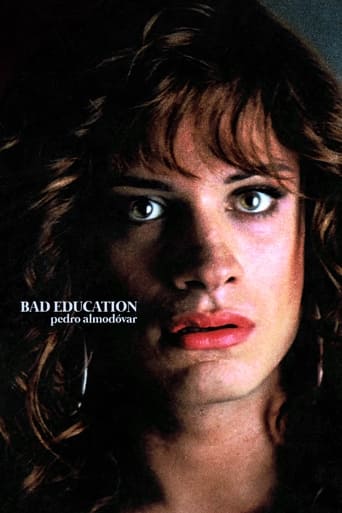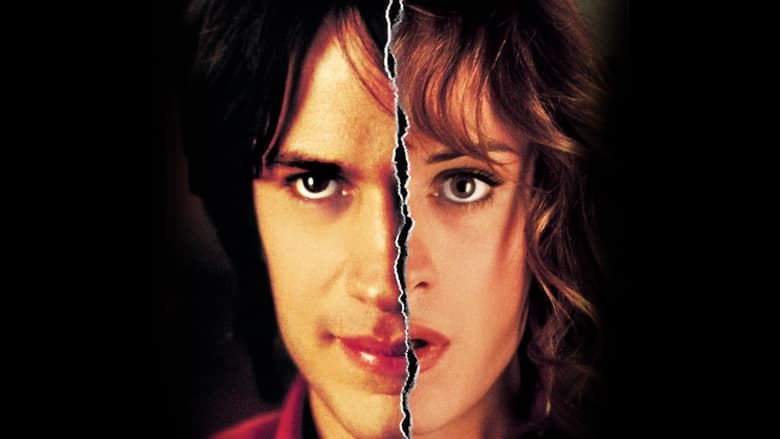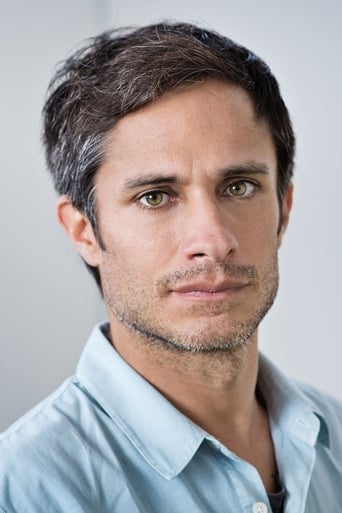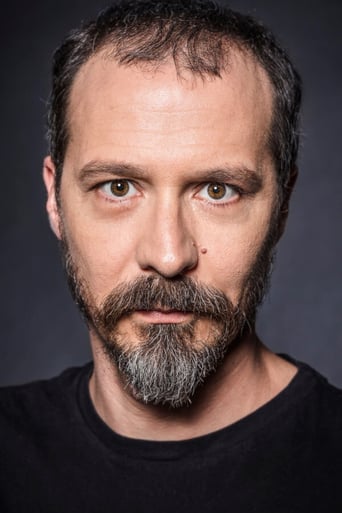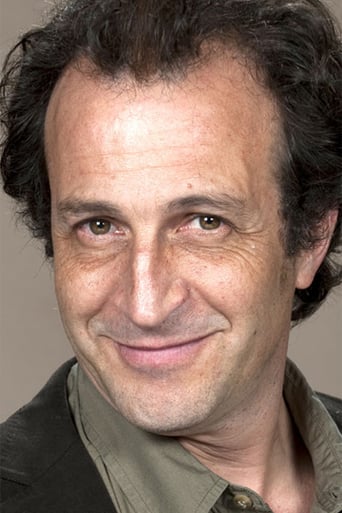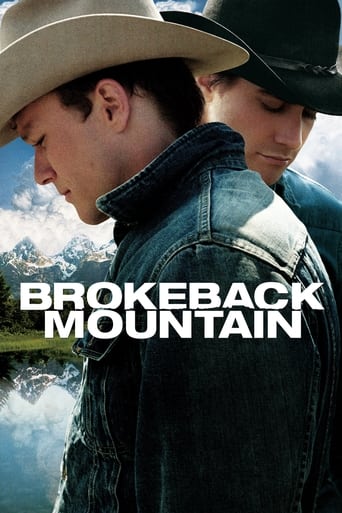Bad Education (2004)
Two children, Ignacio and Enrique, know love, the movies and fear in a religious school at the beginning of the 1960s. Father Manolo, director of the school and its professor of literature, is witness to and part of these discoveries. The three are followed through the next few decades, their reunion marking life and death.
Watch Trailer
Cast


Similar titles
Reviews
Very Cool!!!
While it is a pity that the story wasn't told with more visual finesse, this is trivial compared to our real-world problems. It takes a good movie to put that into perspective.
The film never slows down or bores, plunging from one harrowing sequence to the next.
One of the worst ways to make a cult movie is to set out to make a cult movie.
One of the best work of Pedro Almedor, with themes similar to those of his All About My Mother, he took rather more artistic way to explore the film making by introducing a story with a story. A connection between past and present is the narrative in a fantasized way which is very touching. The bitter taste of the reality in comparison of our memories is very well presented. Pedro never clanged on to his scenes much longer or tried to over dramatized his films which works best for the films length and matches the innocence of younger characters. The scenes in convent are worth praising. Daniel Giménez Cacho's work as a priest dealing with inner demon while in the presence of a child is very beautiful. Rest of the cast were good too. Best of the movie would be the twist it came with the final character's introduction and explanation of alternate reality as to the one protagonist was imagining. A way to show the strength of the writer. An emotional, convincing and disturbing work of art.
It's 1980 Madrid. Enrique Goded is a film director struggling for inspiration. He is paid a surprise visit by Ignacio Rodriguez (Gael García Bernal). He doesn't really recognize his first love whom he hasn't seen for 16 years. Ignacio wants to be called Ángel. He's a struggling actor looking for work. He also brings a story titled "The Visit". It's semi-autobiographical. Enrique doesn't really care about Ignacio anymore but he starts reading the story. In the story, Ignacio is a drag queen called Zahara who blackmails Father Manolo who abused young Ignacio.Gael García Bernal is magnificent. This is a multi-layered movie. Somewhere after the filming finishes on the screen, it got a bit complicated. This is a challenging movie. The subject matter is all Pedro Almodóvar. The complexity also has another layer that is solely for foreign movies. Reading subtitles can add another layer that Almodóvar may not appreciate.
I watched this three times. The first viewing left me a bit confused and that confusion was pretty much cleared up with a second viewing. The third viewing was to appreciate Almodovar's artistry without being distracted by having to read subtitles. I know of no other director who uses color so effectively.The story is a bit complicated. Suffice it to say that it involves homosexual relationships, a pedophile priest, transvestism, blackmail, young boys masturbating, murder, drug use, and stories within stories. Those elements may be enough to keep many people away, but the emphasis is more on the role sexuality plays in people's lives and how people sometimes use it to accomplish goals that are not ostensibly sexual.Gael Garcia Bernal brings a dynamism and magnetism to the screen that I find rare in contemporary actors. He plays two roles here and, as the transvestite Zahara, I think he would turn the heads of many heterosexuals.As the miscreant priest Father Manolo, Daniel Cacho emotes such an obsessional desire for his favored young boy that it is disturbing. As much as we have heard about pedophilia among the priesthood in recent years, I cannot think of many fictional movies where this has been treated in any detail. Many of the scenes here have such a feeling of authenticity that I suspect that Almodovar has revealed some intimate details of his own life. The victimized young boy says that he lost his faith while in Catholic school. Given the nature of his experiences there, this is not surprising. He says that losing his faith allowed him to do anything. Almodovar does a disservice to atheists if anyone takes that statement as a general truth. Also, the fact that the victimized boy grows up to be a transvestite should not be viewed as a necessary effect of having been molested.Maybe a bit over the top, but there is enough in this to entertain most people who are not put off by the subject matter.
La mala educación is a dark film concerning the long-term effects of pederasty in the priesthood. The sexual abuse of one young boy, Ignacio, affects the lives of all of the characters. The storyline is very disjointed and confusing which complements the confusing subject matter.The key elements in this film are desire, unrequited love, and the willingness to do anything to accomplish goals. Many of the characters in the film are not good people. One is a pederastic priest, another a desperate junkie, but the worst of all is Angél, a young actor who is willing to go to unbelievable lengths to get what he wants. He is guilty of many transgressions, including deception, manipulation, assuming his dead brother's identity, and murder. Gael García Bernal, the actor that plays Angél, is the glue that holds the film together. His portrayal is simultaneously bone chilling and heartbreaking.I believe that Enrique Goded, the young gay film maker is a reference to Pedro Almodóvar. He is the most human of the characters. He is not a monster. He is the victim of the beautiful and determined Angél.Neither the cinematography nor the soundtrack is remarkable. The costumes are appropriate to the late 1970's and do not lend nor distract from the film at large. As in most Almodóvar films, the most developed aspect is the acting. This film lacks one of Almodóvar's common themes of women banding together. While such a relationship would not make sense in the film, it seems empty without it.

